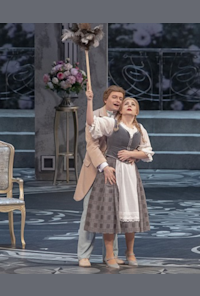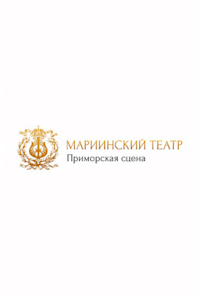

Летучая мышь by Strauss II, С (2021/2022), Режиссер Алексей Степанюк, Ilya Ustiantsev, Дирижёр Valery Trubin-Leonov, Primorsky Stage of the Mariinsky Theatre, Владивосток, Россия
Продюсер

(2021 сент. 15, 19; окт. 23; нояб. 14; дек. 27; 2022 янв. 07, 08, 09; февр. 13; март 06; апр. 09; май 08)
Дирижер
VT(2021 нояб. 14; 2022 февр. 13; март 06; апр. 09; май 08)
Режиссер-постановщик
АС(2022 февр. 13; март 06; апр. 09; май 08)
IU(2022 февр. 13; март 06; апр. 09; май 08)
Исполнители
Rosalinde
(Розалинда)
AD(2021 нояб. 14; 2022 февр. 13; апр. 09; май 08)
AK(2021 нояб. 14; 2022 март 06; апр. 09; май 08)
ES(2022 февр. 13; март 06)
Gabriel von Eisenstein
(Генрих фон Айзенштайн)
EM(2021 нояб. 14; 2022 март 06; апр. 09)
AS(2022 март 06; апр. 09; май 08)
AT(2022 февр. 13)
AK(2022 февр. 13)
Adele
(Адель)
MS(2022 февр. 13; март 06; апр. 09)
OZ(2022 февр. 13; апр. 09; май 08)
AM(2022 март 06)
Alfred
(Альфред)

(2021 нояб. 14; 2022 март 06; апр. 09; май 08)
IA(2021 нояб. 14; 2022 февр. 13)

(2022 февр. 13; март 06)
VM(2022 май 08)
Prinz Orlofsky
(Князь Орловский)
TM(2021 нояб. 14; 2022 март 06; апр. 09; май 08)
IK(2021 нояб. 14; 2022 март 06; май 08)
LB(2022 февр. 13; апр. 09)
Dr Falke
(Доктор Фальк)
DM(2022 февр. 13; март 06; апр. 09; май 08)

(2022 февр. 13; апр. 09)
AB(2022 март 06)
Инструментарий
Фортепиа́но
AT(2022 февр. 13; март 06; апр. 09; май 08)
Постановочная труппа
Хореограф
IU(2022 февр. 13; март 06; апр. 09; май 08)
Художник-постановщик
VO(2022 февр. 13; март 06; апр. 09; май 08)
Художник по костюмам
VO(2022 февр. 13; март 06; апр. 09; май 08)
Художник по свету
EG(2022 февр. 13; март 06; апр. 09; май 08)
Хормейстер
LS(2022 февр. 13; март 06; апр. 09; май 08)
Музыкальный руководитель
ВГ(2022 февр. 13; март 06; май 08)
Видео
VZ(2022 февр. 13; март 06; апр. 09; май 08)